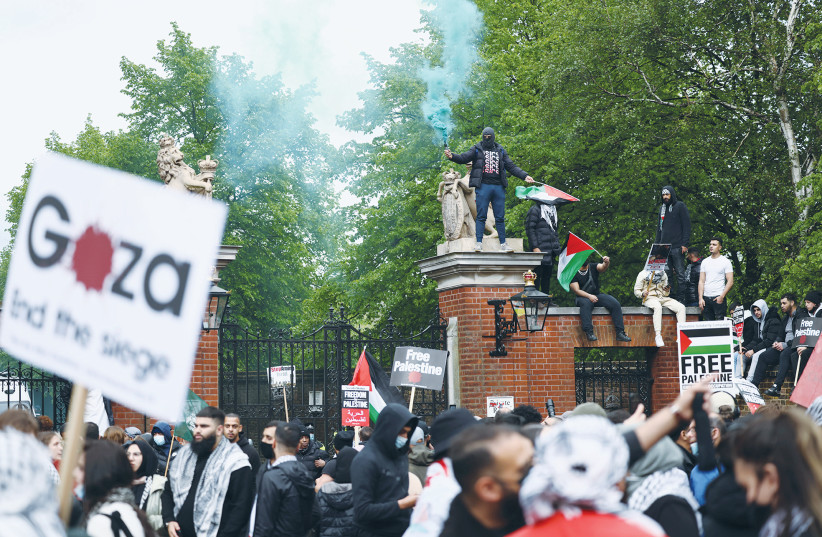Over 56% of the United Kingdom's Jewish community reported feeling unwelcome in the country due to the public and media criticism of Israel during the 2021 conflict with Gaza.
A report by the Institute for Jewish Policy Research (JPR), co-authored by Dr. David Graham and Dr. Jonathan Boyd, published on Wednesday, explored the emotional experiences within the Jewish community and the profound implications of the Israel-Gaza conflict in May 2021 on their sense of security and belonging in the UK.
Impact of conflict
Titled "Conflict in Israel and Gaza: Heightened feelings of insecurity among Jews living in the UK," the study reveals a community grappling with complex emotions. Survey respondents were asked to assess their agreement with two pivotal statements: "Because I am Jewish, I felt I was being held responsible by non-Jews for the actions of Israel’s government during the conflict," and "Public and media criticism of Israel during the conflict made me feel Jews are not welcome in the UK."
The findings exposed a profound sense of unease within the community: A dramatic 73% of UK Jews reported feeling personally held responsible by non-Jews for the actions of Israel's government during the conflict. Approximately one in five respondents (19%) expressed the highest level of agreement (10) with this sentiment, signifying a significant emotional toll.

These responses highlight that the conflict, despite its geographical distance, had a deeply personal impact. The majority of respondents felt unwelcome in their own country due to events unfolding thousands of miles away, underscoring the interconnectedness of global events and local perceptions of belonging.
Subgroup analysis
Furthermore, the report scrutinized specific Jewish subgroups to determine which were more inclined to strongly endorse these two key contentions. Researchers computed the mean (average) score for each of the two 0-10 scales, excluding 'Don't know' responses.
For the statement, "Because I am Jewish, I felt I was being held responsible by non-Jews for the actions of Israel’s government during the conflict," the overall mean score was a substantial 6.9, significantly above the midpoint of 5.0, indicating a prevalent tendency among respondents to agree with this sentiment.
As for the statement, "Public and media criticism of Israel during the conflict made me feel Jews are not welcome in the UK," the mean score was 5.7, still leaning towards agreement and remaining above the midpoint.
Additionally, the report explored the intricate interplay between antisemitism, Jewish identity, and perceptions. It unveiled a strong correlation between respondents' views on the extent of antisemitism as a problem in the UK and their positions on the two statements. Those who perceived antisemitism as a significant issue were more likely to feel personally blamed for Israel's actions and to believe that Jews were unwelcome in the UK due to criticism of Israel.
Concerning Jewish identity, those with a more religious outlook were more likely to associate criticism of Israel with an unwelcoming environment for Jews. However, individuals with 'very weak' religiosity held a different perspective, being less likely to feel that media criticism led to a sense of unwelcome among Jews in the UK.
These insights into the intricate relationship between antisemitism, Jewish identity, and perceptions amid the Israel-Gaza conflict offer a nuanced understanding of the experiences within the UK's Jewish community.
